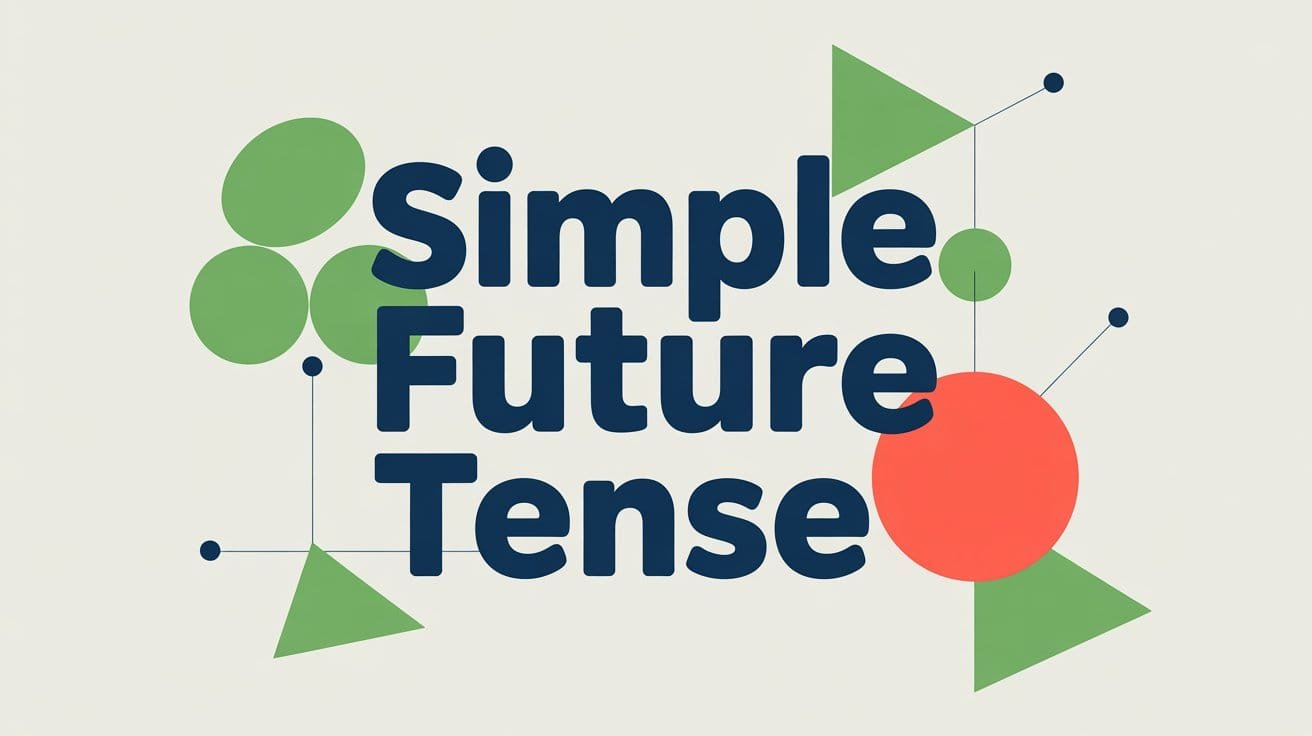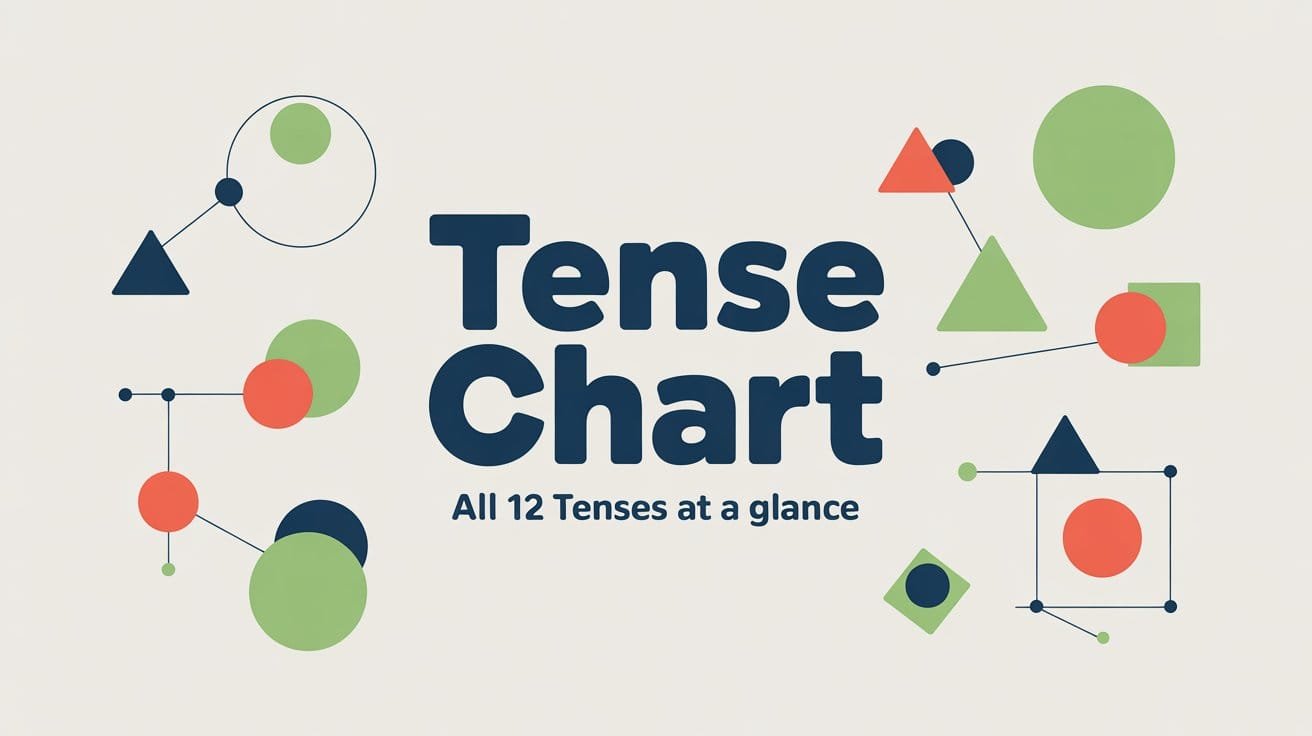The simple future tense is used to describe actions that haven’t happened yet but will happen later. It helps you talk about future plans, make predictions, offer help, or respond on the spot. For example: “She will arrive at 10 AM.” This shows that her arrival is expected in the future.
Whether you’re planning an event, making a promise, or predicting tomorrow’s weather, the simple future tense keeps your sentences clear and direct. In this guide, you’ll learn how to form it, when to use it, and how to avoid common mistakes, along with real-world examples.
Structure of the Simple Future Tense
The simple future tense is used to describe actions that will take place after the present moment. It’s most commonly formed with will + base form of the verb. The structure remains the same across all subjects.
Affirmative Sentences
Structure:
Subject + will + base verb
Examples:
- I will finish my homework tonight.
- She will call you after the meeting.
- They will join us for dinner.
- We will start the project next week.
Negative Sentences
Structure:
Subject + will not (won’t) + base verb
Examples:
- He will not attend the seminar.
- I won’t forget your birthday.
- They will not be late.
- She won’t participate in the contest.
Interrogative Sentences
Structure:
Will + subject + base verb?
Examples:
- Will you come to the party?
- Will she finish the report on time?
- Will they travel by train or by flight?
- Will it snow tomorrow?
Usage of the Simple Future Tense
The simple future tense is used to talk about actions or decisions that will happen after now. It often expresses plans, predictions, promises, or spontaneous decisions.
To Express Voluntary Actions
Use it when offering help, making a quick decision, or responding with intent.
Examples:
- I’ll carry that bag for you.
- She will help you understand the topic.
- Don’t worry, we’ll figure it out.
To Make Predictions About the Future
Use it when stating what you think or expect will happen.
Examples:
- It will rain this evening.
- People will travel to Mars someday.
- The results will surprise everyone.
To Express Promises or Commitments
Use it when making a firm statement about what you will do.
Examples:
- I will send the report by 5 PM.
- We will not miss the deadline.
- I’ll call you as soon as I arrive.
To Describe Scheduled or Planned Events
Use it for official or public events, especially with a set time.
Examples:
- The train will leave at 6:45 AM.
- The event will begin after lunch.
- The shop will open tomorrow at 10 AM.
Common Time Expressions with the Simple Future
Time expressions help clarify when an action will happen. In the simple future tense, they point to a time after now—often soon, later, or at a specific point in the future.
Common Expressions
- tomorrow
- next (week, month, year, etc.)
- soon
- later
- in a few minutes / hours / days
- this evening / this weekend
- by [a future time or date]
- someday
Examples:
- She will visit us tomorrow.
- I’ll finish the assignment next week.
- They will reply to the email soon.
- We’ll go out for dinner this weekend.
- He will start the new job in a few days.
- The movie will begin at 6 PM.
Practice Tips for Using the Simple Future Tense
The simple future tense is one of the most straightforward verb forms to use. These quick practice ideas can help you build confidence in using it accurately.
Make Future Plans
Think about what you will do today, tomorrow, or next week, and write sentences.
Example:
- I will visit my grandparents on Sunday.
- We will clean the house tomorrow.
Respond to Everyday Situations
Use spontaneous responses to practice making decisions on the spot.
Example:
- Someone says, “The door is open.”
You reply: “I’ll close it.”
Use It with Time Expressions
Pick a time in the future and build sentences using common expressions like next, soon, or by tomorrow.
Example:
- She will return by evening.
- They will leave next Monday.
Ask and Answer Simple Questions
Practice asking and answering questions in the simple future.
Examples:
- Will you join the meeting later?
- Yes, I will. / No, I won’t.
Frequently Asked Questions About the Simple Future Tense
What is the simple future tense used for?
It’s used to describe actions or events that will happen after the present time. You can use it for plans, promises, predictions, or quick decisions. Example: Maya will call you later.
How do you form the simple future tense?
Use will + base form of the verb. This structure works the same for all subjects. Example: I will study tonight.
What’s the difference between “will” and “shall”?
“Shall” is mostly used in formal or British English, and often with I or we. Example: Shall we begin? In modern English, will is more common in all situations.
Can we use contractions in the simple future?
Yes. The most common contraction is ’ll for will, and won’t for will not.
Examples:
I’ll see you soon.
She won’t come today.
Is there another way to talk about the future?
Yes. You can also use be going to + base verb to express future plans or intentions, especially when a decision was made earlier. Example: My father is going to start a new business next month. You must learn the difference between “will” and “going to” to use them correctly.




Some grammarians affirm that there are only 2 sets of tenses: present and past. Very few of them accept 3 : present, past and future ones. I wonder why they do not talk about conditional tenses in the indicative mood and the tenses in the subjunctive mood. Could I have some clarifications about these?
That’s a good question, and the confusion is very common.
In theoretical grammar, English is often described as having only two morphological tenses: present and past. Future meaning is usually expressed through auxiliary verbs such as will or going to, which is why some grammarians avoid calling it a true tense.
Conditional and subjunctive forms are usually discussed under mood, not tense, because they express attitude, possibility, or hypothesis rather than time.
In this article, the term simple future tense is used in the teaching and learning sense, which is standard in ESL and school grammar. It helps learners understand how English talks about future time, even if the forms are not inflected like present or past.
Both approaches are valid; they simply serve different purposes.